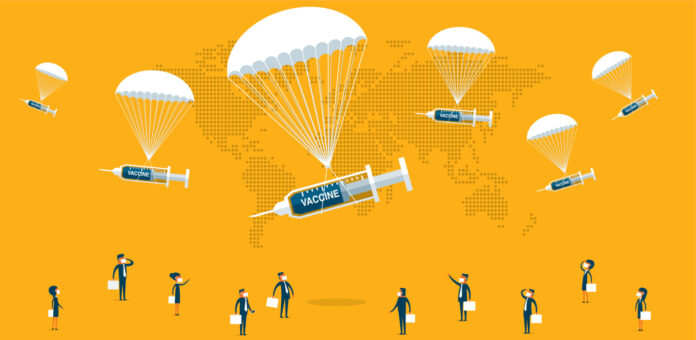Author: Prashant Yadav
Affiliation: the Center for Global Development and INSEAD.
Organization/Publisher: Foreign Affairs
Date/Place: December 27, 2021/USA
Type of Literature: Article
Word Count: 1848
Link:https://www.foreignaffairs.com/articles/world/2021-12-27/how-make-covid-19-vaccines-available-all
Keywords: Manufacture, Corona, Non-mRNA Vaccines
Brief:
The writer talks about securing Corona vaccines by producing them to cover the need for them, as the writer believes that this accelerated escalation in the production of Corona vaccines is positive. Still, it is not sufficient, due to the uneven distribution of the vaccine between countries around the world. Rich and middle-income countries purchased about 70% of global vaccine production in 2021. While developing countries got less than 1% of world production. The writer notes that most of the vaccines that countries are manufacturing, buying, and storing are non-mRNA vaccines. They are the type of vaccines containing attenuated viruses (live attenuated vaccines) that do not cause disease but trigger an immune response. But the writer believes that according to the implications of the new Omicron variant, the demand for mRNA vaccines will be loud. Almost all mRNA vaccines are manufactured in Europe and the United States. Capacity is concentrated mainly in China, the European Union, India, the United Kingdom, and the United States for vaccine production. This type of acquisition necessarily leads to industrial countries gaining control, giving them priority to vaccinating their population, which is what India did in March 2021. As for the steps that mRNA companies should take, they are building vaccine production sites around the world, and focusing on Africa and Latin America. Although many companies have met such measures, they are incomplete without activating the work of these factories. Therefore, the G20 countries must provide the logistical support necessary to manufacture the vaccines required for all countries. The writer highlights the critical problem of securing vaccines for all the world’s population and that wealth, as an enabler of vaccine production capacity, is an essential matter for all humanity. The actions mentioned by the author are being taken into account, but not urgently enough. The concerted efforts of the great countries that contain the pharmaceutical sector would contribute significantly to solving this crisis.
By: Taqwa Abu Kmeil, CIGA Research Assistant




